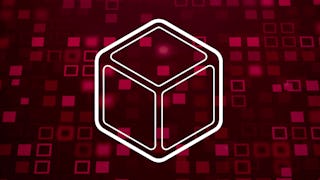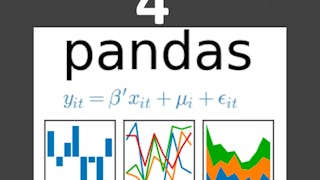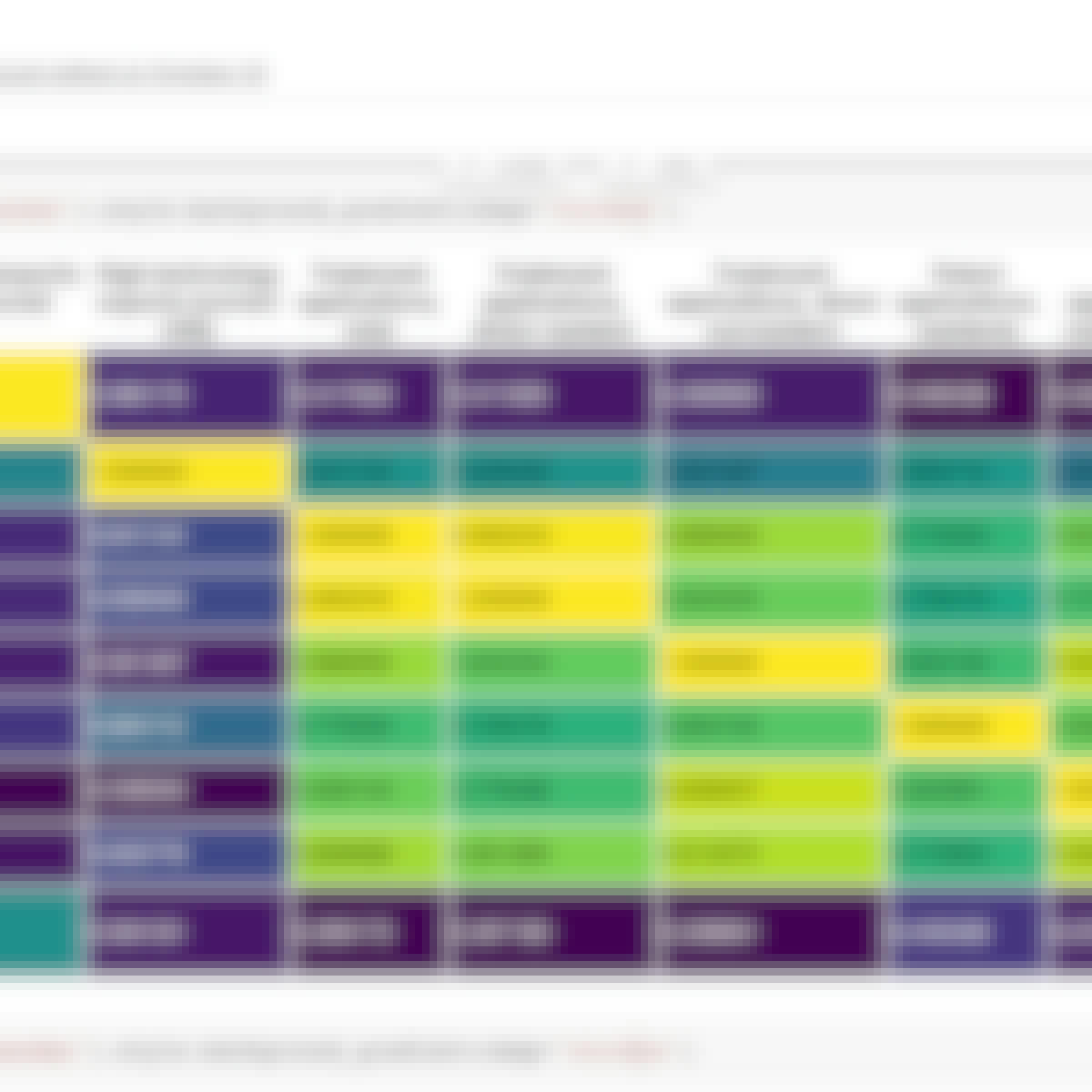- Browse
- Healthcare Analytics
Results for "healthcare analytics"
 Status: Free TrialFree TrialE
Status: Free TrialFree TrialEEmory University
Skills you'll gain: Marketing Channel, Strategic Marketing, Business Marketing, Customer experience strategy (CX), Go To Market Strategy, Target Market, Customer Analysis, Market Research, Value Propositions, Market Opportunities, Case Studies, B2B Sales, Consumer Behaviour, Strategic Thinking, Innovation
4.5·Rating, 4.5 out of 5 stars53 reviewsIntermediate · Course · 1 - 4 Weeks
 Status: Free TrialFree TrialJ
Status: Free TrialFree TrialJJohns Hopkins University
Skills you'll gain: Surveys, Program Evaluation, Survey Creation, Health Policy, Sampling (Statistics), Health Systems, Health Assessment, Health Equity, Data Collection, Quantitative Research, Institutional Review Board (IRB), Maternal Health, Data Management, Statistical Analysis, Analysis, Nutrition and Diet, Public Health, Research Design, Data Cleansing, Data Analysis
4.6·Rating, 4.6 out of 5 stars81 reviewsIntermediate · Specialization · 3 - 6 Months
 Status: Free TrialFree TrialB
Status: Free TrialFree TrialBBoard Infinity
Skills you'll gain: Email Automation, Workflow Management, AI Workflows, No-Code Development, Deepseek, Large Language Modeling, Generative AI, Automation, Model Deployment, Data Analysis, Google Sheets, Data Processing, Gmail
4.1·Rating, 4.1 out of 5 stars38 reviewsBeginner · Course · 1 - 4 Weeks
 Status: Free TrialFree Trial
Status: Free TrialFree TrialSkills you'll gain: Blockchain, Business Strategy, Strategic Decision-Making, Work Breakdown Structure, Project Implementation, Project Design, Solution Design, Financial Services, Business Modeling, Competitive Analysis, Market Analysis, Case Studies, Value Propositions, Market Research
4.4·Rating, 4.4 out of 5 stars69 reviewsIntermediate · Course · 1 - 3 Months
 Status: PreviewPreviewP
Status: PreviewPreviewPPontificia Universidad Católica de Chile
Skills you'll gain: Data Visualization, Descriptive Analytics, Data-Driven Decision-Making, Data Analysis, Data Visualization Software, Predictive Analytics, Business Analytics, Database Management, Data Science, Relational Databases, Forecasting, Python Programming
3.8·Rating, 3.8 out of 5 stars71 reviewsBeginner · Course · 1 - 4 Weeks

Skills you'll gain: Pandas (Python Package), Data Analysis, Data Manipulation, Time Series Analysis and Forecasting, Python Programming
4.8·Rating, 4.8 out of 5 stars18 reviewsBeginner · Guided Project · Less Than 2 Hours
 Status: NewNewStatus: Free TrialFree TrialA
Status: NewNewStatus: Free TrialFree TrialAAI Business School
Skills you'll gain: Prompt Engineering, Generative AI Agents, Responsible AI, Risk Management, Artificial Intelligence and Machine Learning (AI/ML), Generative AI, AI Enablement, Business Risk Management, Artificial Intelligence, Accounting and Finance Software, Financial Services, AI Workflows, Automation, Data Analysis
4.1·Rating, 4.1 out of 5 stars21 reviewsBeginner · Course · 1 - 4 Weeks
 Status: Free TrialFree TrialC
Status: Free TrialFree TrialCCoursera
Skills you'll gain: Portfolio Risk, Portfolio Management, Financial Analysis, Financial Data, Analysis, Data Analysis, Risk Management, Quantitative Research, Performance Analysis, Market Data, Financial Modeling, Investments, Asset Management
4.5·Rating, 4.5 out of 5 stars35 reviewsBeginner · Course · 1 - 4 Weeks
 Status: PreviewPreview
Status: PreviewPreviewSkills you'll gain: Predictive Modeling, Predictive Analytics, Marketing Analytics, Statistical Machine Learning, Machine Learning, Data Science, Applied Machine Learning, Artificial Intelligence and Machine Learning (AI/ML), Model Evaluation, Statistical Analysis
4.7·Rating, 4.7 out of 5 stars9 reviewsAdvanced · Course · 1 - 4 Weeks

Skills you'll gain: Exploratory Data Analysis, Box Plots, Correlation Analysis, Data Visualization, Scatter Plots, Data Cleansing, Statistical Visualization, Data Manipulation, Pandas (Python Package), Statistical Hypothesis Testing, Descriptive Statistics, Statistical Analysis, Data Analysis, Python Programming
4.3·Rating, 4.3 out of 5 stars35 reviewsBeginner · Guided Project · Less Than 2 Hours
 Status: Free TrialFree TrialM
Status: Free TrialFree TrialMMathWorks
Skills you'll gain: Computer Vision, Model Evaluation, Image Analysis, Convolutional Neural Networks, Deep Learning, Matlab, Data Preprocessing, Data Visualization, Transfer Learning, Applied Machine Learning, Data Analysis
4.9·Rating, 4.9 out of 5 stars13 reviewsBeginner · Course · 1 - 4 Weeks
 Status: Free TrialFree TrialM
Status: Free TrialFree TrialMMedCerts
Skills you'll gain: Patient Communication, Patient-centered Care, Nutrition Education, Basic Patient Care, Patient Education And Counseling, Vital Signs, Patient Evaluation, Health Assessment, Nursing and Patient Care, Patient Observation, Health And Wellness Coaching, Medical History Documentation
5·Rating, 5 out of 5 stars9 reviewsBeginner · Course · 1 - 4 Weeks
Searches related to healthcare analytics
In summary, here are 10 of our most popular healthcare analytics courses
- Marketing Channel Benefits: Emory University
- Evaluating Large-Scale Health Programs: Johns Hopkins University
- Build Intelligent Agents Using DeepSeek & N8N : Board Infinity
- Blockchain in Financial Services: Strategic Action Plan: INSEAD
- Python para Ciencia de Datos: Pontificia Universidad Católica de Chile
- Mastering Data Analysis with Pandas: Learning Path Part 4: Coursera
- Introduction to AI for finance professionals: AI Business School
- Mastering Portfolio Analysis : Coursera
- Four Rare Machine Learning Skills All Data Scientists Need: SAS
- Basic Statistics in Python (Correlations and T-tests): Coursera










